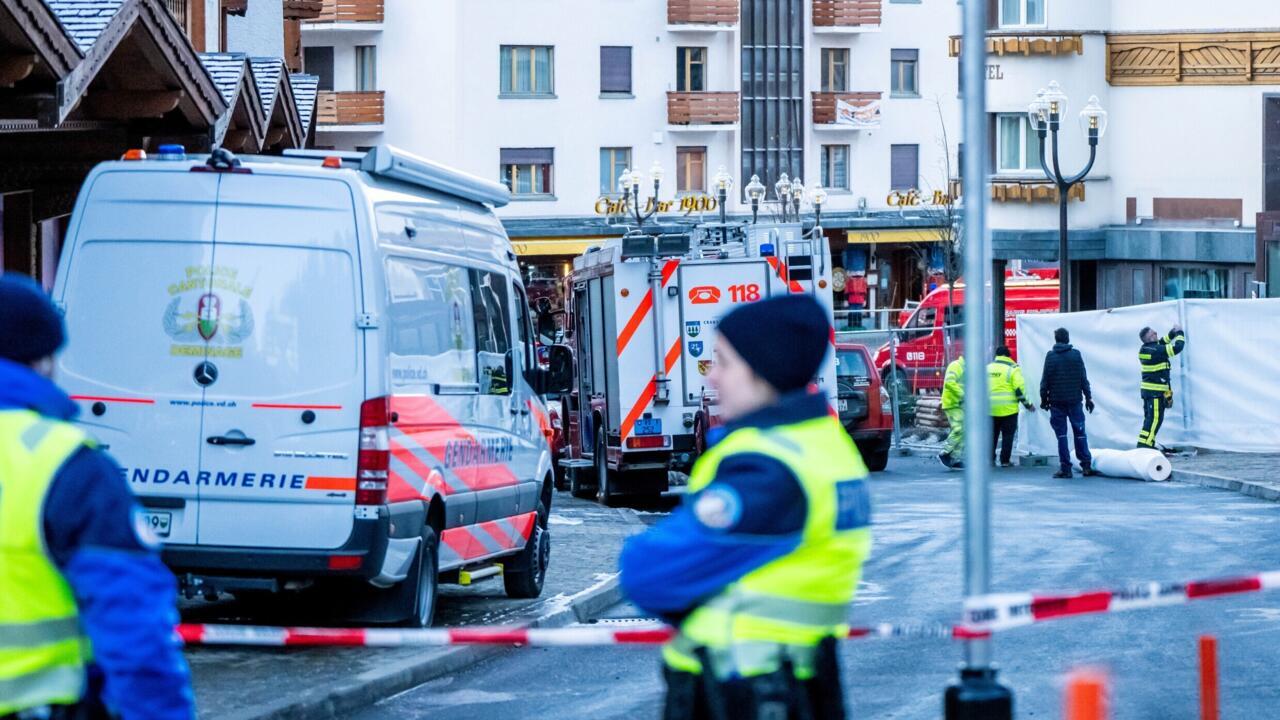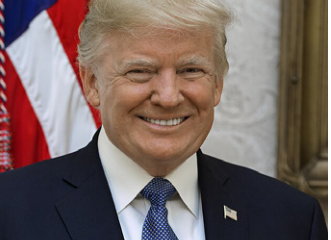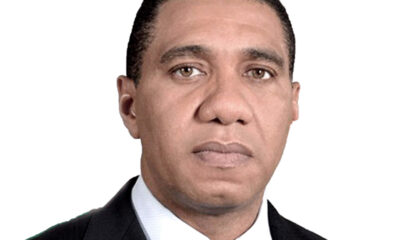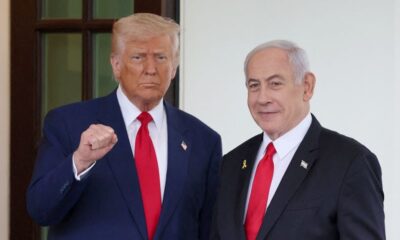News
Trump Administration Pushes Africa Deportation Deals

The United States has intensified its efforts to forge deportation deals with African countries, with South Sudan being the only country so far to accept third-country nationals deported from the US. Rwanda has also confirmed ongoing talks with the Trump administration about a potential agreement to host deported migrants.
Despite lacking clarity on the specifics of the deal, South Sudan accepted eight individuals with criminal convictions, only one of whom was a South Sudanese national.
Experts speculate that South Sudan’s decision might be aimed at currying favor with the Trump administration to avoid visa bans, sanctions, or other punitive measures.
Conversely, Nigeria’s Foreign Minister Yussuf Tuggar has categorically stated that the country will not accept third-country deportees, citing its own pressing problems.
Tuggar emphasized that Nigeria is not under any illusion about the potential benefits of such a deal.
Rwanda’s foreign minister revealed that talks are underway with the US about hosting deported migrants.
However, human rights groups have long criticized Rwanda’s human rights record, particularly regarding the deaths of perceived government critics in custody.
Analysts suggest that some African countries might be motivated to participate in US deportation programs to maintain favorable relations with the US, particularly in light of recent tariff impositions and aid cuts.
Beverly Ochieng, an analyst at Control Risks, notes that countries may prioritize avoiding losses in access to the US economy and bilateral relations.
Lawyers and advocates have expressed concerns about the uncertainty surrounding the legal status and safety of migrants deported to third countries.
Michelle Mittelstadt, a spokesperson for the Migration Policy Institute, highlights the confusion over who controls these individuals once deported.
The Trump administration’s push for deportation deals with African countries marks a significant shift in US policy towards the continent.
During a recent summit with West African leaders, Trump discussed migration and the need for countries to accept their nationals who do not have the right to stay in the US, as well as the possibility of accepting deported nationals of third countries.
Liberian President Joseph Boakai and Guinea Bissau President Umaro Sissoco Embaló confirmed discussions on third-country nationals during the summit but stated that Trump did not directly ask them to accept deportees.
Other West African governments have remained silent on the matter.
As the US continues to push for deportation deals globally, African countries are weighing their options, balancing potential benefits against human rights concerns and the welfare of deported migrants.
News
40 Dead, 119 Injured in Swiss Ski Resort Bar Fire

40 Dead, 119 Injured in Swiss Ski Resort Bar Fire
No fewer than 40 persons have been confirmed dead following a devastating fire outbreak at a bar in the Swiss ski resort town of Crans-Montana on New Year’s Eve, Swiss police have said.
Authorities on Sunday confirmed that the bodies of all 40 victims have now been identified.
The victims were aged between 14 and 39 years, with 15 of them under the age of 18.
The youngest victims were a 14-year-old Swiss girl and a 14-year-old French boy.
The deceased were drawn from several nationalities, including Swiss, Italian, Romanian, Turkish, Portuguese, French and Belgian citizens, as well as nationals of the United Kingdom, France and Israel, underscoring the international nature of the tragedy at the popular Alpine resort.
In addition to those killed, 119 people sustained varying degrees of injuries, most of them severe burns.
Police disclosed that six of the injured are in such critical condition that they have not yet been identified.
The fire broke out at Le Constellation bar, a venue known to be popular with young people in Crans-Montana, where the legal drinking age is 16.
A preliminary investigation indicated that sparklers attached to bottles and held too close to the ceiling may have ignited the blaze.
Swiss prosecutors have since opened a criminal investigation into the French couple who managed the bar.
The couple, identified by the media as Jacques and Jessica Moretti, are suspected of manslaughter by negligence, bodily harm by negligence and arson by negligence, according to the Valais regional prosecutor’s office.
The lead prosecutor in Valais canton, Ms Beatrice Pilloud, said investigators are examining whether the acoustic foam installed on the bar’s ceiling contributed to the rapid spread of the fire and whether it complied with existing safety regulations.
Police said no further personal details of the identified victims would be released out of respect for their families.
However, some relatives have begun to speak publicly as the scale of the tragedy sinks in.
On Saturday night, the mother of one of the victims, Ms Brodard-Sitre, announced via Facebook that her 16-year-old son, Arthur Brodard, was among those who died.
In an emotional video message, she said the family could now begin mourning, “knowing that he is in peace and in the light,” adding that her son had “left to party in paradise.”
Earlier, while Arthur was still listed as missing, his mother told local newspaper Le Temps that she had been “living a nightmare,” revealing that some of his friends had suffered burns to nearly half of their bodies.
“There are no words – they went through hell,” she said.
Italian media also identified 16-year-old junior golfer, Emanuele Galeppini, as one of the victims.
The Italian Golf Federation paid tribute to the teenager, describing him as a “young athlete who carried passion and authentic values.”
His father reportedly confirmed that the boy was at Le Constellation on the night of the incident, although Italian authorities had initially declined to confirm his death.
News
US Denies War With Venezuela as Tensions Rise After Maduro’s Capture

US Denies War With Venezuela as Tensions Rise After Maduro’s Capture
The United States has insisted it is not at war with Venezuela, a day after US forces carried out strikes that led to the capture of Venezuelan President Nicolás Maduro and his wife, Cilia Flores, in an operation that has sharply escalated tensions between the two countries.
US Secretary of State, Marco Rubio, said on Sunday that Washington’s actions should not be interpreted as a declaration of war, stressing that the operation was “limited and targeted.”
His comments came amid international concern over the implications of the US military action and growing uncertainty over Venezuela’s political future.
According to a spokesperson, Maduro and Flores are expected to appear in a US court on Monday, following their arrest.
The charges they will face were not immediately disclosed, but US officials have previously accused Maduro’s government of corruption, drug trafficking and human rights abuses.
Venezuela’s Defence Minister, Vladimir Padrino, confirmed that the US operation resulted in significant casualties, claiming that a large part of Maduro’s security team was killed, alongside what he described as “innocent civilians.”
Padrino condemned the strikes as a violation of Venezuela’s sovereignty and accused Washington of using excessive force.
In Caracas, the Venezuelan government formally denounced what it called “military aggression” by the United States.
In a statement, the Venezuelan armed forces said they remain loyal to interim President Delcy Rodríguez, signaling that Maduro’s allies still retain control of key state institutions despite his capture.
Trump, speaking in an interview with The Atlantic, warned that Rodríguez would “pay a big price” if she “does not do what is right,” a remark that has further inflamed tensions and raised fears of additional US pressure or sanctions.
News
How US Captured Venezuela’s President Maduro in Daring Overnight Raid

How US Captured Venezuela’s President Maduro in Daring Overnight Raid
United States forces have captured Venezuelan President Nicolas Maduro and his wife, Cilia Flores, following a highly coordinated overnight military operation in Caracas, marking one of the most dramatic US interventions in Latin America in decades.
The operation, code-named Operation Absolute Resolve, was launched late Friday after months of surveillance by US intelligence agencies, which closely monitored Maduro’s movements, residences and security arrangements.
According to US officials, the mission was finalised in early December after extensive rehearsals, including the construction of a full-scale replica of Maduro’s safe house for training.
President Donald Trump authorised the operation at 22:46 EST on Friday (03:46 GMT Saturday), shortly before midnight in Caracas, allowing US forces to operate under the cover of darkness.
The mission, lasting just over two hours, involved air, land and sea components and deployed more than 150 aircraft, including fighter jets, bombers and reconnaissance planes.
Explosions rocked Caracas around 02:00 local time as US strikes targeted key military installations, including air defence systems, La Carlota air base, Fuerte Tiuna military complex and Port La Guaira.
Large sections of the city were plunged into darkness, with Trump later claiming US forces disabled power supplies ahead of the raid.
As air strikes continued, elite US Delta Force troops moved into the city and stormed Maduro’s heavily fortified compound.
US officials said the troops encountered resistance, with one helicopter reportedly hit, though no US service member was killed.
Maduro was apprehended while attempting to reach a secure room inside the compound.
By about 04:20 local time, helicopters carrying Maduro and his wife had departed Venezuelan airspace. They are now in the custody of the US Department of Justice and are expected to be transferred to New York to face criminal charges related to drug trafficking and narco-terrorism.
The US had previously placed a $50 million reward on information leading to Maduro’s arrest.
President Trump announced the capture shortly after, hailing the operation as a major success. “Maduro and his wife will soon face the full might of American justice,” he said.
The action has drawn sharp international reactions. Brazil’s President Luiz Inácio Lula da Silva condemned the raid, warning it set a “dangerous precedent” for international relations.
In the US, some lawmakers criticised the administration for not seeking congressional authorisation before launching the operation.
Despite the controversy, US officials defended the secrecy and timing of the mission, insisting that prior disclosure could have compromised its success.
The arrest of Maduro, who has ruled Venezuela since 2013, is expected to have far-reaching political and security implications across the region.
-

 Business1 week ago
Business1 week agoTaxation and the Nigerian Diaspora
-

 News1 week ago
News1 week agoTwo Dead as Anthony Joshua Involved in Road Crash in Nigeria
-

 News1 week ago
News1 week agoUS Pledges $2 Billion to UN Humanitarian Programs Amid Funding Cuts
-

 News1 week ago
News1 week agoNigeria Writes Off $1.42bn, N5.57trn Legacy NNPCL Debts After Reconciliation
-

 News1 week ago
News1 week agoHolness Urges Unity as CARICOM Navigates Shifting Global Order
-

 News1 week ago
News1 week agoTrump, Netanyahu Hold Crucial Talks on Gaza Ceasefire, Regional Security
























